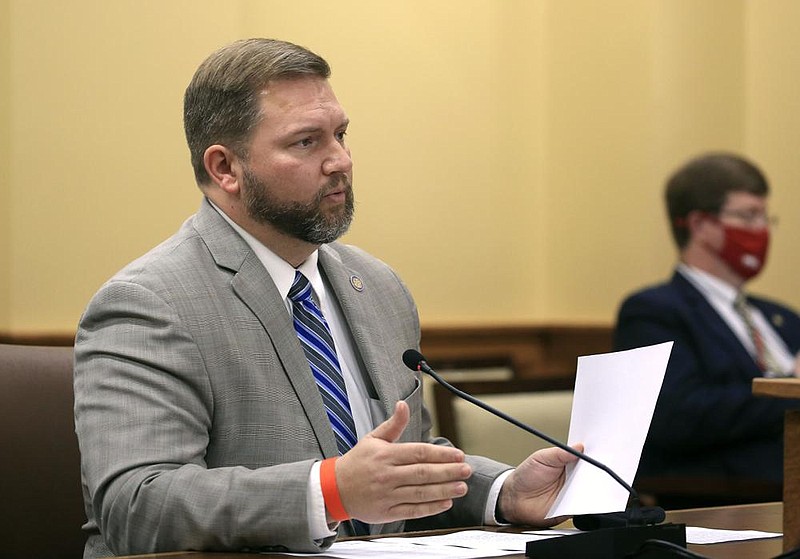A hospitalized child in Missouri died in 2010 after being placed under a "do not resuscitate" order by a doctor without either parents' permission.
A bill before the Legislature would forbid that in Arkansas.
Rep. Jim Dotson, R-Bentonville, sponsor of House Bill 1116, and Jodianne Tritt, executive vice president of the Arkansas Hospital Association, emphasized to their knowledge no child in Arkansas ever went into "end-of-life" care without a parent's consent.
"End-of-life medical procedure" as defined in the bill would include do-not-resuscitate orders, withdrawal of life support and organ removal for the purpose of organ donation. A minor, who would be protected under this law, is defined as anyone between birth and 18 years old.
Under the bill, a parent could give consent either orally or in writing, but if given orally at least two witnesses must be present.
Dotson introduced the bill, he said, after Missouri passed a similar law in May 2019.
"Before I heard of that bill in Missouri, I didn't think this would be possible," Dotson said.
Sen. Bart Hester, R-Cave Springs, is Senate co-sponsor. Hester said he learned from Dotson about the possibility of proceeding to end-of-life care without a parent's approval.
Hospitals and doctors in Arkansas don't decide to end lifesaving treatment for a child without a parent's consent as a practical and ethical matter, Tritt said. Her association has no objection to putting the mandate into law. The association has sent a copy of Dotson's bill to a specialist in medical ethics to check for unforeseen problems.
The biggest question to be resolved about the bill, Tritt said, is what to do if one parent gives consent and the other doesn't.
HB 1116 is largely a copy of the Missouri legislation, Dotson said. Dotson is in no hurry to push the bill forward, he said. He wants to give medical providers and others interested in the legislation time to review it and suggest improvements, he said.
Witnesses must be present and willing to confirm consent was given, under the proposal. The parent would retain the right to withdraw the consent under the bill.
The bill makes exceptions to the consent requirement for youths who are married, legally emancipated from his parents, incarcerated by the state or in the custody of the Arkansas Department of Human Services.
Dotson dubbed the bill "Simon's law" after the 2010 death in Missouri that led to the law's passage there.
Simon Crosier was born Sept. 7, 2010, and died Dec. 3 of the same year. He was born with Trisomy 18, also known as Edward's syndrome. The life-threatening developmental disorder ends most victims' lives by the end of their first year. Only about 10% of those with the disorder live into adulthood, according to news accounts.
Three days before an appointment with the newborn's cardiac surgeon, his parents "watched in disbelief as our child took his last breaths inside a hospital where he had been a patient for months and no 'code blue' resuscitation was engaged," Sheryl Crosier was quoted in a report by the Missouri Times. Her family learned of the "do not resuscitate" order after Simon's death.
Doug Thompson can be reached by email at dthompson@nwadg.com or on Twitter @NWADoug.
